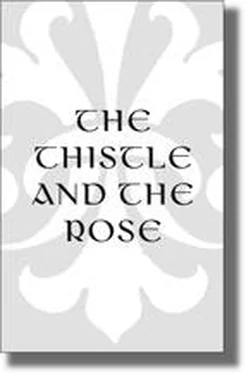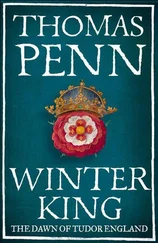Jean Plaidy - To Hold the Crown - The Story of King Henry VII and Elizabeth of York
Здесь есть возможность читать онлайн «Jean Plaidy - To Hold the Crown - The Story of King Henry VII and Elizabeth of York» весь текст электронной книги совершенно бесплатно (целиком полную версию без сокращений). В некоторых случаях можно слушать аудио, скачать через торрент в формате fb2 и присутствует краткое содержание. Жанр: Старинная литература, на русском языке. Описание произведения, (предисловие) а так же отзывы посетителей доступны на портале библиотеки ЛибКат.
- Название:To Hold the Crown: The Story of King Henry VII and Elizabeth of York
- Автор:
- Жанр:
- Год:неизвестен
- ISBN:нет данных
- Рейтинг книги:5 / 5. Голосов: 1
-
Избранное:Добавить в избранное
- Отзывы:
-
Ваша оценка:
- 100
- 1
- 2
- 3
- 4
- 5
To Hold the Crown: The Story of King Henry VII and Elizabeth of York: краткое содержание, описание и аннотация
Предлагаем к чтению аннотацию, описание, краткое содержание или предисловие (зависит от того, что написал сам автор книги «To Hold the Crown: The Story of King Henry VII and Elizabeth of York»). Если вы не нашли необходимую информацию о книге — напишите в комментариях, мы постараемся отыскать её.
To Hold the Crown: The Story of King Henry VII and Elizabeth of York — читать онлайн бесплатно полную книгу (весь текст) целиком
Ниже представлен текст книги, разбитый по страницам. Система сохранения места последней прочитанной страницы, позволяет с удобством читать онлайн бесплатно книгу «To Hold the Crown: The Story of King Henry VII and Elizabeth of York», без необходимости каждый раз заново искать на чём Вы остановились. Поставьте закладку, и сможете в любой момент перейти на страницу, на которой закончили чтение.
Интервал:
Закладка:

There were three weeks when the Prince of Wales lay in state and then began the funeral procession from Ludlow Castle to the Cathedral at Worcester.
There was one among the mourners who wept with the others, but he could not suppress the fierce joy in his heart.
This was what he had always longed for. To be the firstborn. But that was of no consequence now. Miraculously he was there in the place he had longed for.
No longer Duke of York, but Prince of Wales.
“Henry the King,” he murmured to himself. “Henry the Eighth.”
He could not help studying his father, whose face was pale, whose hair was gray and whose eyes were without luster. Arthur’s death had aged him a great deal. Well, the Prince of Wales was only eleven and even he recognized that was rather young to be a king.
“I can wait awhile,” he told himself, “knowing that one day it will come.”
The Princes in
the Tower
 he King was weighed down with anxieties. He had lost his eldest son; the Queen was ill; but most alarming of all was the fact that his grip on the crown after seventeen years of good rule was still not firm enough to give him peace of mind.
he King was weighed down with anxieties. He had lost his eldest son; the Queen was ill; but most alarming of all was the fact that his grip on the crown after seventeen years of good rule was still not firm enough to give him peace of mind.
At the heart of his insecurity was the fear that someone would arise and snatch the throne from him—someone mature, strong, able to charm the people and who was in possession of that which for all his cleverness Henry would never attain: the claim to rule by the law of hereditary accession.
There would always be whispers against him—behind his back, of course. At least none dared utter them aloud, but he was aware of them. “Bastard sprig!” “Was your grandmother really married to Owen Tudor?” “Your mother, it is true, descended from John of Gaunt—but from his bastard family of Beauforts.” And whatever case was brought forward to prove legitimization there would always be those to shake their heads and murmur against him.
So here he was after seventeen years during which he had proved he knew how to govern since he had brought his country from near bankruptcy to financial prosperity—and yet he must live constantly with this fear that someone would one day rise against him.
In public he could snap his fingers at pretenders. He could laugh at poor simple Lambert Simnel tending his falcons and Perkin Warbeck had met his just deserts. Henry hoped by his leniency to these two—and he had been lenient even to Perkin Warbeck—that he had shown the people how little importance he attached to these impostors.
But in fact he had attached the utmost importance to them—not in themselves, of course, but what they stood for.
The young Earl of Warwick was dead. It had been a wise move to get rid of him, and to execute him openly for treason. There must be no more disappearances in the Tower. There was more to be feared from mysterious disappearances, he had learned, than from open execution. No one talked of young Warwick now. The people had accepted that he had been a menace to the peace of the country. They had not been very interested in him. Poor boy, he had been a sorry figure, a prisoner for most of his life. It would have been better for him if he had never been born.
Assessing the mood of the people Henry believed that they were not eager for rebellions; they wanted peace. They were in fact more contented with his rule than they realized. They grumbled. People always grumbled. If things went well they wanted them to go better. Give them comfort and they wanted luxuries. They did not like the taxes imposed by Empson and Dudley. Did they not see the need for a solvent exchequer? Did they not understand that a bankrupt nation could not hold off its enemies? Did they realize that their growing prosperity came from the wise calculation of the King and his able ministers? They must know that trade prospered; they cared about that. Was that why they had realized it would have been bad for the country to put a foolish youth on the throne just because his father had been the brother of Edward the Fourth?
Yet both Lambert Simnel and Perkin Warbeck had had their supporters. Lambert had been doomed to failure from the start. The idea of trying to impersonate a young man who was actually living and could be brought forth from his prison in the Tower and shown to the people was absurd. It was different with Perkin. His had been a much stronger case. For he had declared he was Richard Duke of York—the Prince who had disappeared in the Tower.
This was a lesson to all would-be pretenders. If you are going to impersonate someone let it not be one whose whereabouts are known. Choose one who has disappeared mysteriously and in this case one who, had he lived, could well be the true heir to the crown.
This struck at the heart of his acute anxieties.
Who knew when someone else would arise? At any time there could be someone with features similar to those of Edward the Fourth who would declare he was the son of that King, who would say: “I am one of the Princes who was in the Tower and who was never accounted for.”
It was not difficult for unscrupulous people to find young men who looked like Edward the Fourth for that monarch had scattered his seed far and wide. he must have left bastards in various parts of this country and others. Wherever he went he had his women, many of whom would think it an honor to bear the King’s child.
So there it was . . . the heavy shadow . . . the ghost of two little boys, who would now be young men . . . to come and haunt him and disturb his peace.
If only he could say: These boys died in the Tower. I know they died. He could not do that. He dared not answer the all-important question: How do you know?
There must be a way. He would find it.
Then the opportunity came and as soon as he realized what it could bring, he determined to seize it. It would need care; but then he was a careful man. A certain ingenuity? Oh, he would manage that.
He was careful and ingenious by nature. And there was so much at stake.
It was when the name Sir James Tyrrell was mentioned in connection with the Earl of Suffolk that the idea came to him. He was excited. It might just be possible to put an end to these fears which had haunted him ever since he had come to the throne. And if this could be done, if it were possible to work this out, he must do so. He was determined that his plan should succeed.

It had not been difficult for Edmund de la Pole, Earl of Suffolk to convince himself that he had a greater claim to the throne than Henry Tudor. He was the second son of John de la Pole, second Duke of Suffolk, and Elizabeth the sister of Edward the Fourth; and from his mother came his claim. Edmund had been twenty-one years old when his father had died and he should have succeeded to the title then because his elder brother, John, had been killed at the battle of Stoke where he had been fighting with Lambert Simnel’s army. However, John had been attainted and his goods and title confiscated by the King. Edmund had become the King’s ward at that time but later Henry had given the title back to Edmund and an agreement as to the family estates had been arrived at, which proved Henry’s grasping nature and his determination to squeeze out every penny he could whenever the opportunity presented itself.
Consequently only a portion of the de la Pole estates were returned and in exchange for these the King demanded a payment of five thousand pounds. Edmund was appalled but the King had stated, with an air of gracious leniency, that the sum could be paid annually over a number of years.
Читать дальшеИнтервал:
Закладка:
Похожие книги на «To Hold the Crown: The Story of King Henry VII and Elizabeth of York»
Представляем Вашему вниманию похожие книги на «To Hold the Crown: The Story of King Henry VII and Elizabeth of York» списком для выбора. Мы отобрали схожую по названию и смыслу литературу в надежде предоставить читателям больше вариантов отыскать новые, интересные, ещё непрочитанные произведения.
Обсуждение, отзывы о книге «To Hold the Crown: The Story of King Henry VII and Elizabeth of York» и просто собственные мнения читателей. Оставьте ваши комментарии, напишите, что Вы думаете о произведении, его смысле или главных героях. Укажите что конкретно понравилось, а что нет, и почему Вы так считаете.












